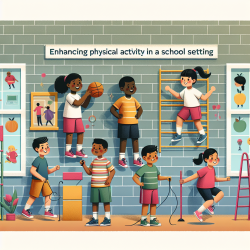Introduction
In the world of nursing education, the journey from student to practitioner is often fraught with challenges. However, these challenges can lead to significant personal growth, known as post-traumatic growth (PTG). A recent study, "Effects of Academic Motivation on Clinical Practice-Related Post-Traumatic Growth among Nursing Students in South Korea: Mediating Effect of Resilience," sheds light on how academic motivation and resilience play crucial roles in this growth process.
The Study at a Glance
The study involved 291 nursing students from South Korea and explored the relationships between academic motivation, resilience, and PTG. The findings were clear: students with intrinsic motivation—those driven by personal interest and a desire to help others—showed significantly higher PTG and resilience compared to those motivated by external factors like job prospects.
Key Findings
- Intrinsic Motivation Leads to Higher PTG: Students motivated by personal interest and a desire to help others reported higher PTG scores.
- Resilience as a Mediator: Resilience mediated 40.9% of the relationship between academic motivation and PTG, highlighting its critical role.
- Correlation Between Motivation, Resilience, and PTG: Stronger intrinsic motivation correlated with higher resilience and PTG scores.
Practical Implications for Practitioners
For practitioners, these findings underscore the importance of fostering intrinsic motivation and resilience in students. Here are some actionable steps:
- Encourage Intrinsic Motivation: Create an environment that values personal interest and the desire to help others. This can be achieved through mentorship programs and reflective practices.
- Build Resilience: Implement resilience-building activities such as workshops, reflective meditation, and cognitive processing exercises.
- Supportive Social Environments: Facilitate supportive environments where students can share experiences and learn from each other.
Encouraging Further Research
While this study provides valuable insights, it also opens the door for further research. Practitioners are encouraged to explore the following areas:
- Develop and test programs that enhance intrinsic motivation and resilience.
- Investigate the relationship between academic motivation and nurse retention rates.
- Conduct studies with larger and more diverse samples to generalize findings.
By focusing on these areas, practitioners can contribute to the development of strategies that not only enhance student outcomes but also improve the overall quality of nursing care.
To read the original research paper, please follow this link: Effects of Academic Motivation on Clinical Practice-Related Post-Traumatic Growth among Nursing Students in South Korea: Mediating Effect of Resilience.










